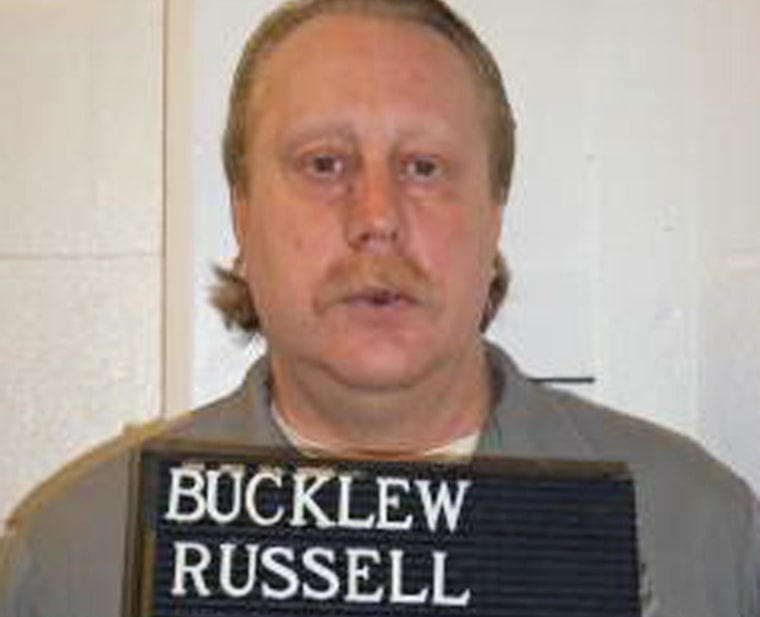The U.S. Supreme Court has halted the execution of a Missouri death-row inmate who argued a rare birth defect would make his execution torture.
There were just five hours left on the death warrant for Russell Bucklew when the high court granted a stay of execution on Wednesday evening.
It will remain in effect pending the outcome of a lower-court appeal. Media representatives at the prison in Bonne Terre reported that state witnesses were being sent home.
Bucklew — who killed a romantic rival in front of his kids, kidnapped and raped his ex-girlfriend and wounded a police officer — would have been the first inmate executed since last month's botched lethal injection of Clayton Lockett in Oklahoma.
His attorney, Cheryl Pilate, said the legal team is "extremely pleased and relieved" it was called off.
“Mr. Bucklew presented strong medical evidence — that the Missouri Department of Corrections failed to contest — showing the likelihood of unnecessary pain and suffering beyond what is constitutionally permissible," she said in a statement.
The convicted murderer suffers from a rare congenital illness that creates vascular tumors in his head and neck and causes hemorrhages.
His lawyers contended that the masses would likely prevent a lethal dose of pentobarbital from circulating properly and would prolong a painful death, violating the constitutional protection against cruel and unusual punishment.
They also argued that Missouri's refusal to divulge where it obtained the deadly drug raised the risk that something would go wrong.
Missouri said it was not clear that Bucklew would suffer, that he waited too long to challenge the execution on the basis of his illness, and that he had failed to propose a more humane execution protocol.
On Tuesday evening, as the clock ticked down, an 8th U.S. Circuit Court of Appeals panel voted 2-1 to stay the execution, saying the state had failed to investigate whether Bucklew's illness would cause complications during the lethal injection.
Missouri appealed, and the full 8th Circuit tossed out the panel's stay several hours later. Within minutes, Supreme Court Justice Samuel Alito issued an emergency order, putting the brakes on the process until his colleagues could delve in.
After reviewing briefs from both sides, the Supreme Court unanimously issued the stay and sent the case back to the 8th Circuit — the very appeals court that had green-lighted the execution less than 24 hours earlier.
The 8th Circuit has not upheld other challenges to the state's refusal to divulge where it buys its pentobarbital, but Bucklew's sickness gives his case a unique dimension.
States across the country that are facing drug shortages have adopted laws or policies that keep their chemical suppliers — often less-regulated compounding pharmacies — anonymous.
In Oklahoma, Lockett had raised concerns about the secrecy before his execution, which turned macabre when he appeared to regain consciousness and struggle in pain before it was over.
An investigation into what went wrong has not been completed, but the debacle prompted the White House to order a federal review of state execution protocols.
The Missouri Attorney General had no immediate comment on the Supreme Court's action.
Bucklew — described by one prosecutor as a "homicidal Energizer bunny" — was convicted of the 1996 murder of Michael Sanders, who was shot dead in front of his children. He then abducted his former girlfriend, Stephanie Pruitt, raped her in the back seat of his car and got into a gunfight with police.
After his arrest, he escaped from jail, hunted down Pruitt's mother and attacked her with a hammer. In court papers, his lawyers have suggested his illness may have played a role in his violent rampage.
